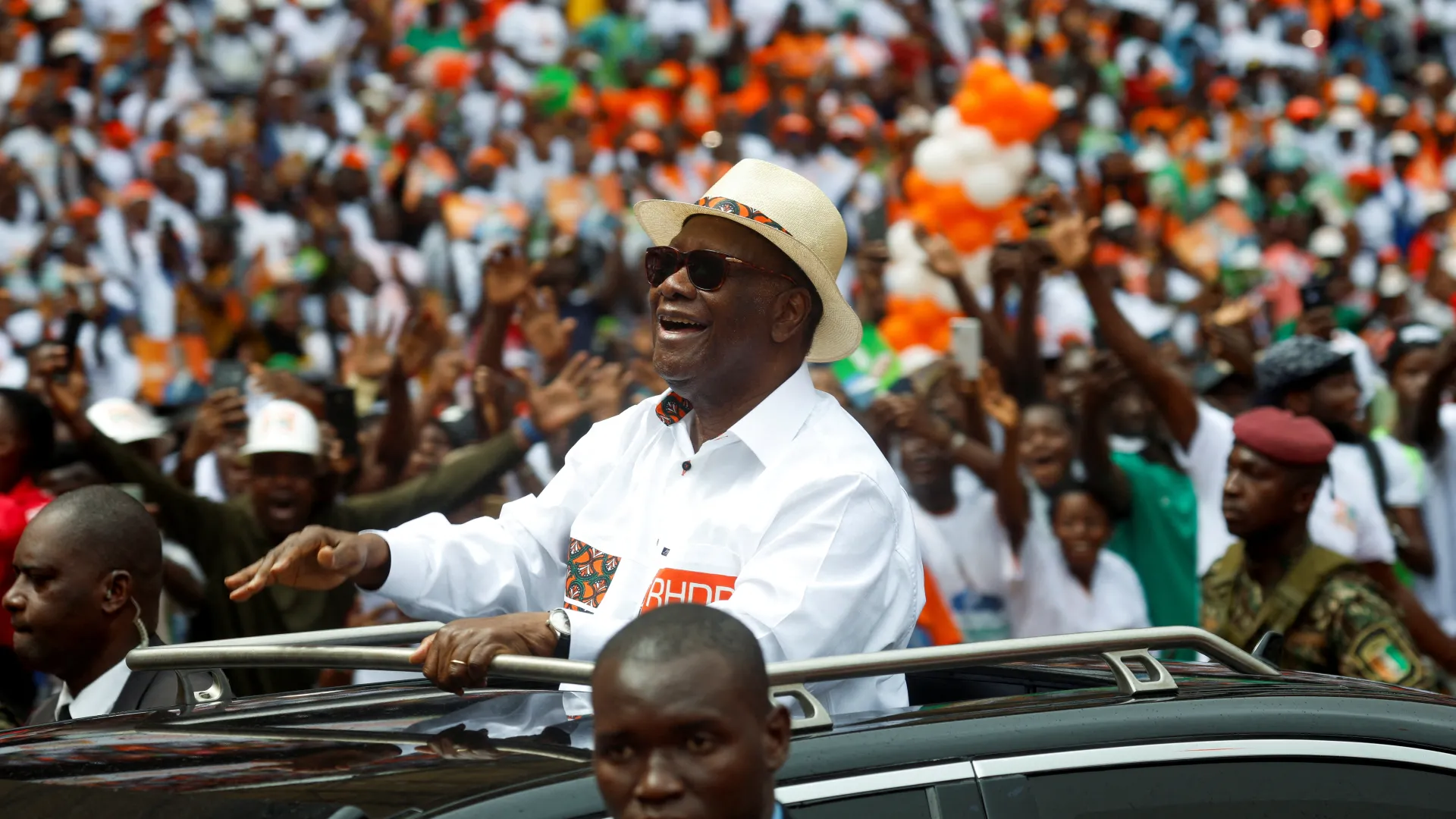
Ivory coast’s political landscape is entering a volatile phase less than three weeks before the presidential election, as opposition leaders rally supporters to take to the streets in defiance of a controversial government ban on demonstrations.
The decision by President Alassane Ouattara’s administration to prohibit public protests has triggered a wave of criticism and heightened fears of unrest.
“Ban on public demonstrations: Why Ouattara’s measure poses a problem,” headlines Générations Nouvelles, reflecting growing public concern over what many view as a restriction on democratic freedoms.
Opposition-aligned newspapers have gone further, accusing the government of orchestrating a campaign of repression. La Voie originale condemned a “wave of repression against the opposition” and insisted that “the PDCI also has its political prisoners.”
It also criticised judicial authorities for summoning opposition figure Pickass, declaring: “For a simple, announced peaceful march, the public prosecutor is in a state of disarray.”
The opposition is now intensifying calls for a nationwide march on 11 October, seen as a direct challenge to what they describe as an unconstitutional fourth-term bid by President Ouattara.
Alliance Nouvelle announced, “March against the 4th term: Gbagbo and Tidjane Thiam call for general mobilization on October 11.”
This message is echoed across opposition media. Le Temps quoted African People’s Party of Côte d’Ivoire (PPA-CI) leader Laurent Gbagbo urging supporters: “For justice, join the Common Front.” Democratic Party of Côte d’Ivoire (PDCI) leader Tidjane Thiam added: “Be on the right side of history.” Notre Voie highlighted expectations of a “strong mobilisation” for the protest.
Other publications have raised doubts about opposition strategy.
Le Sursaut described an “illegible strategy of Thiam and Gbagbo,” while Le Bélier warned of a “political controversy and fragile legal basis” surrounding Ouattara’s candidacy.
Le Quotidien d’Abidjan called the situation a “political climate under high tension,” and Le Nouveau Réveil cautioned that “fundamental problems remain.”
Pro-government media, however, remain confident of victory. The Rally declared a “one-hit-KO victory: ADO boys and girls stand firm until October 25!” while Le Matin assured that “everything is in place for a landslide victory for the ADO candidate.”
L’@venir hailed “committed youth” as the “spearhead” of Ouattara’s campaign, and Le Jour Plus reported that “ADO fever is sweeping the entire country.”
The government has allocated “more than 300 million CFA francs” to support “responsible” media coverage of the elections. Minister Amadou Coulibaly urged journalists “to be professional and impartial,” according to L’Essor ivoirien.
As both sides prepare for the 11 October march and the 25 October election, calls for peace remain strong. La Voie originale paid tribute to Victor Biaka Boda, quoting his grandson’s appeal: “For peace, Korhogo marched on October 4. For peace, the opposition will march on October 11. When the ball comes from the opponent, there is no offside.”
With tensions mounting and divisions deepening, Ivory Coast faces a pivotal moment that will test the resilience of its democracy.



